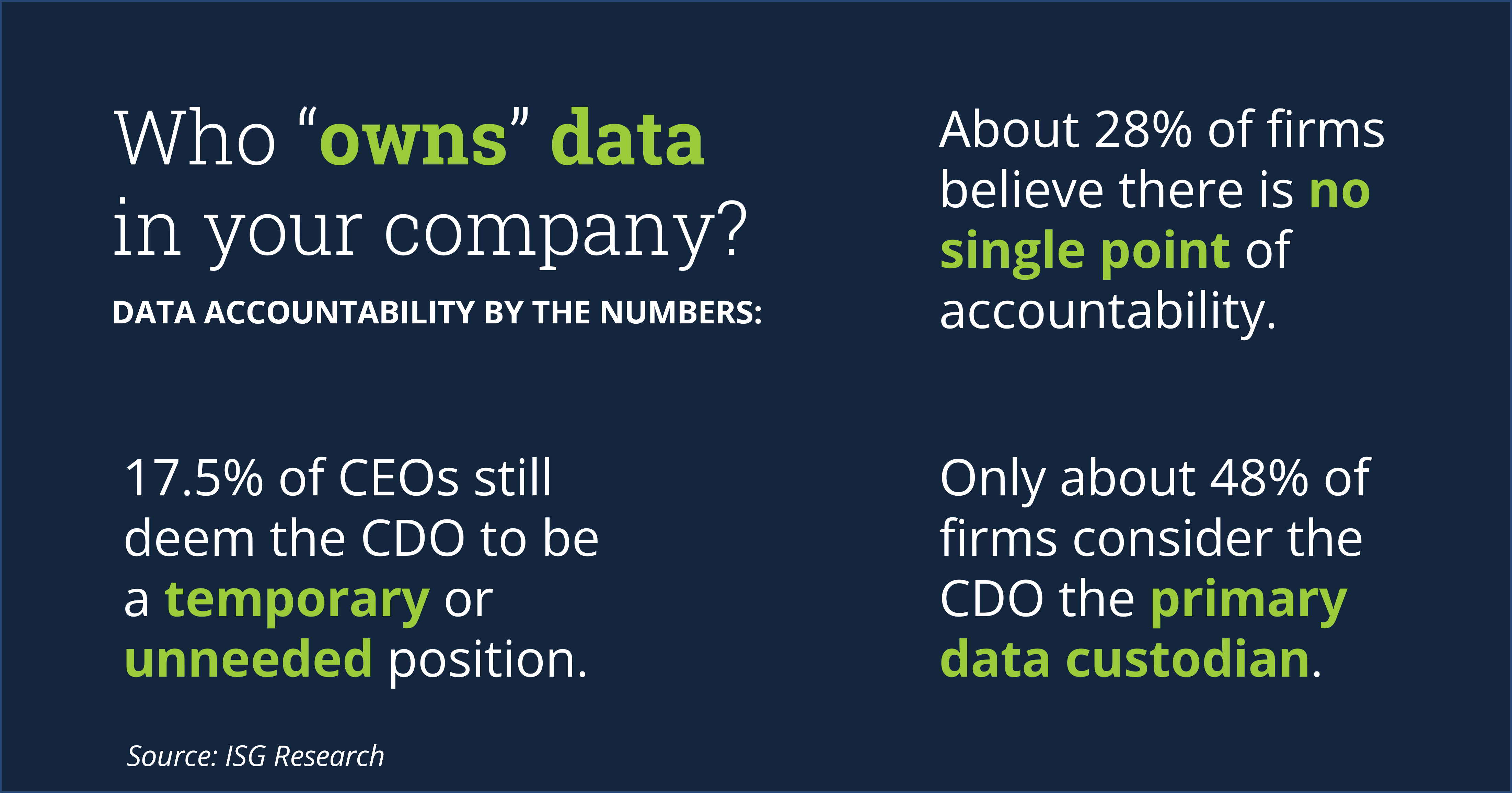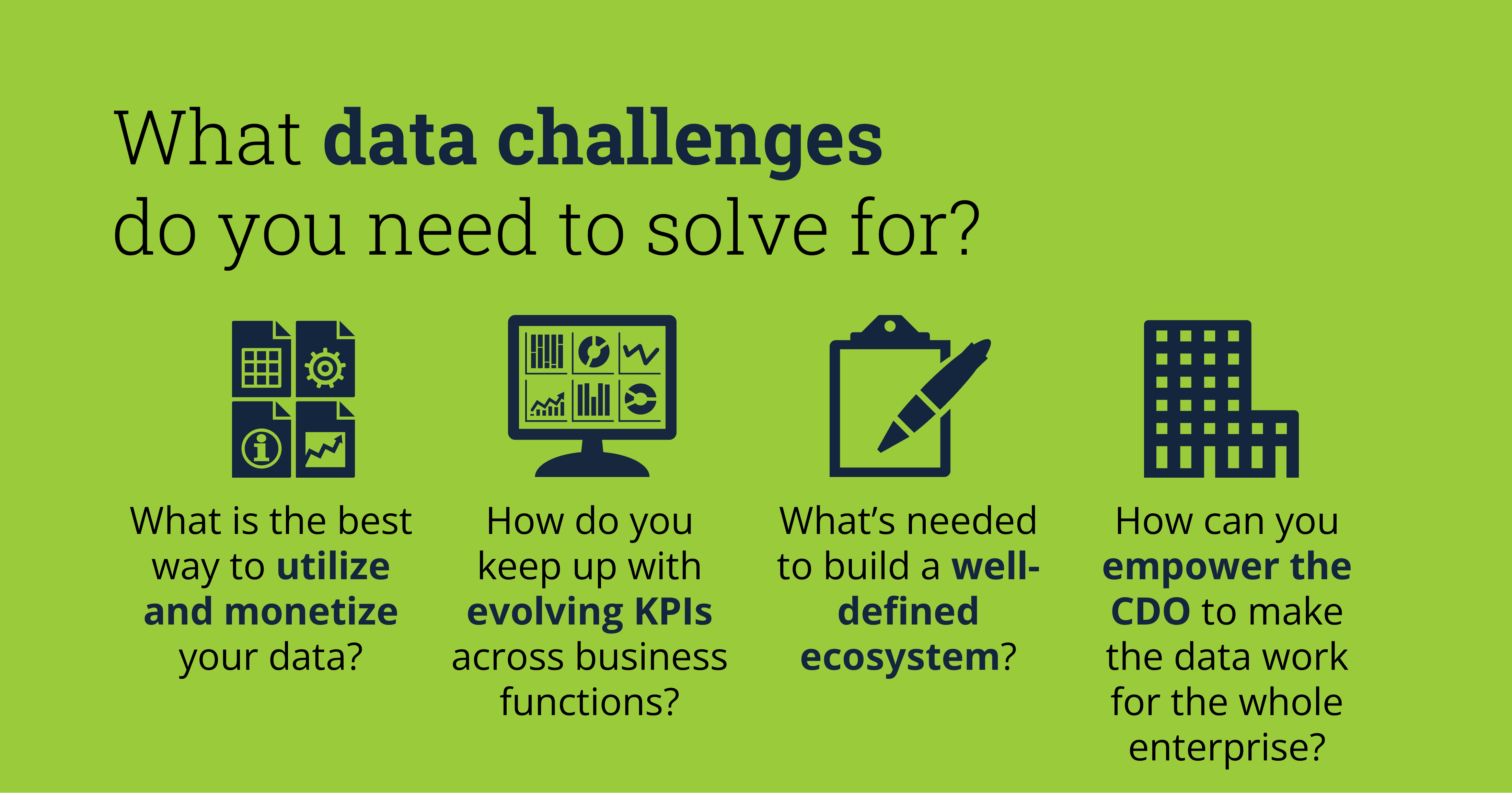“The biggest part of our digital transformation is changing the way we think.”
-Simeon Preston, Managing Director & Group COO, FWD Group
As enterprises come to understand data as one of their greatest sources of competitive advantage, Simeon Preston’s words make more sense than ever. And changing the way an organization thinks about data is one of the most important jobs of a Chief Digital Officer (CDO). Yet, the introduction of any new role in an organization is always marked with intrigue, skepticism and misinformation. And the CDO role is no different.
But the real challenges go way beyond this.

Using and Monetizing Data
A few years back, Amazon showed retailers around the world that data on consumer relationships and loyalty, products and suppliers is more valuable even than physical stores. This means data must amount to revenue and profit. This the job of the CDO: to leverage data strategically with the right balance of analytics capability, business acumen and situational leadership. A data mindset is key, but it must be intentionally facilitated and reinforced with ideation, identification, strategy, planning and pilot projects.
As an enterprise gets started monetizing data, it usually faces the classic chicken-and-egg situation: do we first institutionalize the CDO role to build data monetization capabilities, or do we first identify data monetization opportunities and then appoint the CDO?
This decision brings us to the evolving definition of key performance indicators (KPIs) for the CDO and team.
Evolving KPIs to Work across Business Functions
The CDO and his or her team need clear, tangible and objective KPIs. But the enormity, ambiguity and evolving nature of digital transformation makes this difficult. As the owner of digital transformation and – more importantly – of data monetization, the CDO needs to do more than work with business functions. They need to partner with them. CDOs cannot be mere evangelists. They must formulate a data strategy that moves the needle in the direction of ROI. While it sounds simple, narrowing down the KPIs, i.e., what exactly constitutes “success,” is harder than it appears in theory.
CDOs must leverage every digital technology, data and analytics tool they have available to monetize data. In doing so, they must cross conventional boundaries between sales, marketing, operations, supply chain, CRM and HR data. The CDO and his team also must interface with the partners and service providers that make up the company’s sourcing ecosystem.

Wanted: A Well-Defined Data-sharing Ecosystem
Compared to CIOs, who are responsible for IT infrastructure, productivity and efficiency, the role of the CDO is expansive and fluid. The role’s function and position in the ecosystem is yet to be clearly defined. If a swath of the company’s information systems is managed by outside software products and service providers, the boundaries of the ecosystems expand even more.
A digital ecosystem consists of:
- (CDO + team) + (CIO + team) + (Chief Business/Product Officer + team)
- Technology service providers providing data, infrastructure, supply chain, sales solutions
- Management consultants developing strategy, business mapping, new revenue streams
- The senior leadership and board at the helm, giving direction
- The customer
How to Empower the CDO to Make Data Count for the Whole Enterprise
Firms must learn to accept, trust and partner with the CDO and empower this person to define the organization’s growth trajectory with digital transformation. Collaboration between the CIO and CDO is key as it paves the way to seamless collaboration with business functions. Most importantly, a digital-first or data-first culture is not the responsibility of the CDO alone. It is everybody’s responsibility. Both literally and figuratively, it is everybody’s “business.”
To empower the CDO to build a data-first culture, organizations must answer some basic questions:
- How much technological expertise is required of CDOs?
- How much of data governance, so far with the CIO, should be delegated to the CDO?
- What are the tangible goals the CDO and their team must achieve?
- What leadership support is the organization planning to lend to the CDO?
- What investment of money and time has the board committed to build the CDO function?
- Is senior leadership on board to provide executive sponsorship to data monetization efforts?
In terms of human capital alignment, the CDO and his or her team must have access to relevant training and education on digital transformation. The age of specialization is ending, and integration of data across multiple silos is the need of the hour.
Service providers and management consultants also need to wake up to the new digital reality. Partnering with organizations in their digital transformation imperatives cannot happen without partnering with the CDO. And lastly, the end consumer completes the digital ecosystem for the CDO.
ISG has experience designing data and digital strategies for Fortune 1000 enterprises and helping them build a data culture while sustaining solid results quarter after quarter. Contact us to learn more.
